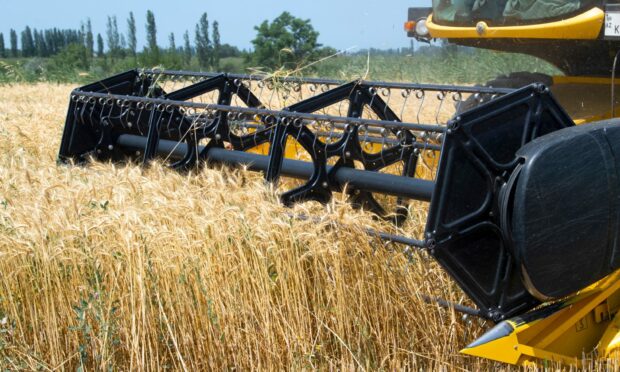New legislation to speed up the development and marketing of gene-edited crops will be introduced by the UK Government in a new Bill today.
Gene editing makes changes to the traits within a species of plant or animal much more quickly and precisely than traditional selective breeding, which has been used for centuries to create stronger and healthier crops and livestock.
The government said gene editing could help improve food security, producing crops that are more nutritious or climate- resilient or grow with less need for pesticides and fertilisers that damage wildlife, and livestock that are resistant to disease or need fewer antibiotics.
It could pave the way for rolling out tomato plants that are mildew-resistant to cut fungicide use or are fortified with vitamin D, for developing wheat that can cope with higher temperatures, and for breeding chickens that are resistant to bird flu.
Officials and scientists draw a distinction between gene editing, which involves the manipulation of genes within a single species or genus, and GM, in which DNA from one species is introduced to a different one. But following an EU ruling in 2018, it is regulated in the same stringent way as GM organisms, a situation which the government is now unpicking as the UK has left the bloc.
The Genetic Technology (Precision Breeding) Bill will create a new category for gene-edited organisms to regulate them separately from genetically-modified (GM) organisms. It will introduce new systems for research and marketing, and ensure information on precision-bred organisms is published on a public register.
The new legislation aims to speed up the development and commercialisation of crops and livestock bred with genetic editing, although the government says it is taking a step-by-step approach by creating rules for plants first.
No changes will be made to the regulation of animals under the GM regime until measures are developed to safeguard animal welfare, the Environment Department (Defra) said.
However, the rule changes will only apply in England as the Scottish Government has said it wants to stay aligned with EU rules on GM, an approach which has frustrated the farmers’ union here.
NFU Scotland (NFUS) president, Martin Kennedy, said: “Scottish farmers and crofters have always shown themselves to be early adopters of new farming technologies.
“We believe that precision breeding techniques as a route to crop and livestock improvement could allow us to grow crops which are more resilient to increased pest and disease pressure brought about by our changing climate and more extreme weather events.
“It would also allow us to breed more productive, efficient animals that produce lower emissions and need fewer inputs to protect their welfare.”
The government has already allowed field trials in England of gene-edited crops without having to go through a licensing process costing researchers £5,000 to £10,000, although scientists have to inform Defra of their tests.
Environment Secretary George Eustice said: “Outside the EU we are free to follow the science. These precision technologies allow us to speed up the breeding of plants that have natural resistance to diseases and better use of soil nutrients so we can have higher yields with fewer pesticides and fertilisers.”
The government’s move was widely welcomed by scientists, including Dr Penny Hundleby, senior scientist at the John Innes Centre.
She said: “If we are to meet the targets of addressing the demands of a growing population without further adding to the cost of living, and while also reducing the environmental impact of agriculture, we need to embrace all safe technologies that help us reach these goals.”


